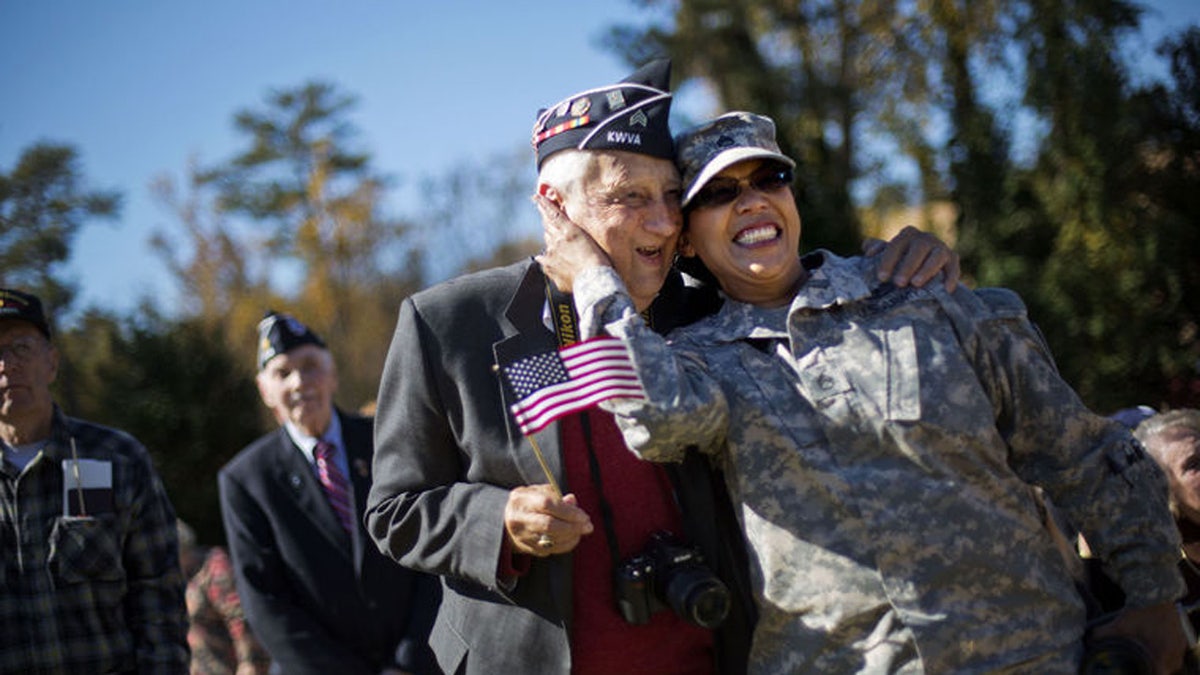
Veterans young and old have advice to share from their global travels. (AP)
If you’ve ever served in the military, chances are you know how to pack light, travel at the last minute and be prepared for just about anything anywhere. From deploying to a war zone, uprooting your family ten times in 10 years or visiting places like Kuwait or Italy on leave, veterans are often very experienced travelers.

Be brave and try new adventures in a foreign country. (iStock)
On this Veterans Day, Yahoo Travel asked several veterans what their best piece of advice is when it comes to traveling smart—and safe. Here’s what we learned:
Neil Murphy is a retired lieutenant colonel with the U.S. Marine Corps who has traveled much of the world in his 20-year career. The first thing you must pack, he says, is “an open, communicative and curious mind.”
“Be smart and security-minded, but don’t let your concern with those items prevent you from ‘seeing’ the world,” Murphy said. “A smile opens doors everywhere.”
“One time in Cape Nosappu, Hokkaido, I went out to a rocky peninsula where there was an old Japanese man fishing. I wanted to see what he was fishing for and see if I could talk to him with my basic Japanese. When I got close to him, he said, ‘Hey, where the hell are you from? You must be American. I’m from San Francisco.’”
“It turns out he moved to Hokkaido some years earlier and was now enjoying the good life at 87,” Murphy said.
Murphy also always packs at least five Power Bars with him. “A snack will cover the gap and prep you for a nap,” he said. Spoken like a true Marine.
Kasey Jorgenson, a U.S. Navy veteran who has visited 11 countries, says to always have fun, but “don’t get stupidly drunk. That’s how you get taken advantage of. If you are out in a new place, keep your wits and stay vigilant.”
He also recommends keeping your passport, ID and money hidden and brushing up on the local laws. “Be polite, especially when eating out and when traveling via taxi. There is a good chance that these people don’t like you and that has to be okay,” he said.
Alex Horton, a U.S. Army veteran who served in Iraq, has traveled to about a dozen countries. “I think the most important thing I learned, from my deployments and traveling around Latin America, is that everything you need can fit in two bags and if it can’t you’ve packed too much stuff,” he said.
And situational awareness is key. “What I do if I’m anywhere, and I go to some shady parts (like Medellin, Colombia), I’ll do a series of things: I know where I’m going from point A to point B, I look behind me every 20 meters or so, if I need to pull out my phone to look at my map, I stop, get off the street and go into a doorway so I’m not just standing on the street corner with a big, full map.”
Horton says the military concept of joint forces, where each service works together, is a good way to approach traveling as well. “If you’re an Army unit, working with Air Force pilots and Marine intel you learn that people have different attributes that can help you. In Quito (Peru) I met this girl from Kentucky. My Spanish is OK, I knew the city, the bus routes, so we just got to talking. I said, ‘Hey, I know how to read a map, you know how to speak the language.’ So we were travel pals for like three days. We had a blast.”
Kristen Rouse served in the Army National Guard for nearly 7 years and is always up for trying adventurous things like eating the local cuisine, which can be tricky sometimes. “You won’t see the food poisoning coming,” she said. “When the locals offer you food or tea, accept their hospitality. I’ve eaten truly weird stuff with Afghan soldiers that never gave me so much as a queasy stomach. U.S. military dining facilities, however, got me a few times.”
“Prioritize relationships and experiences when it comes to food,” she said. “But keep a small stash of Pepto with you, too.”
Travel in the Age of ISIS: the Terrifying New Reality
Is Savannah Really the South's Most Charming City?
National Parks That Make Us Love America: Free on Veterans Day!








































